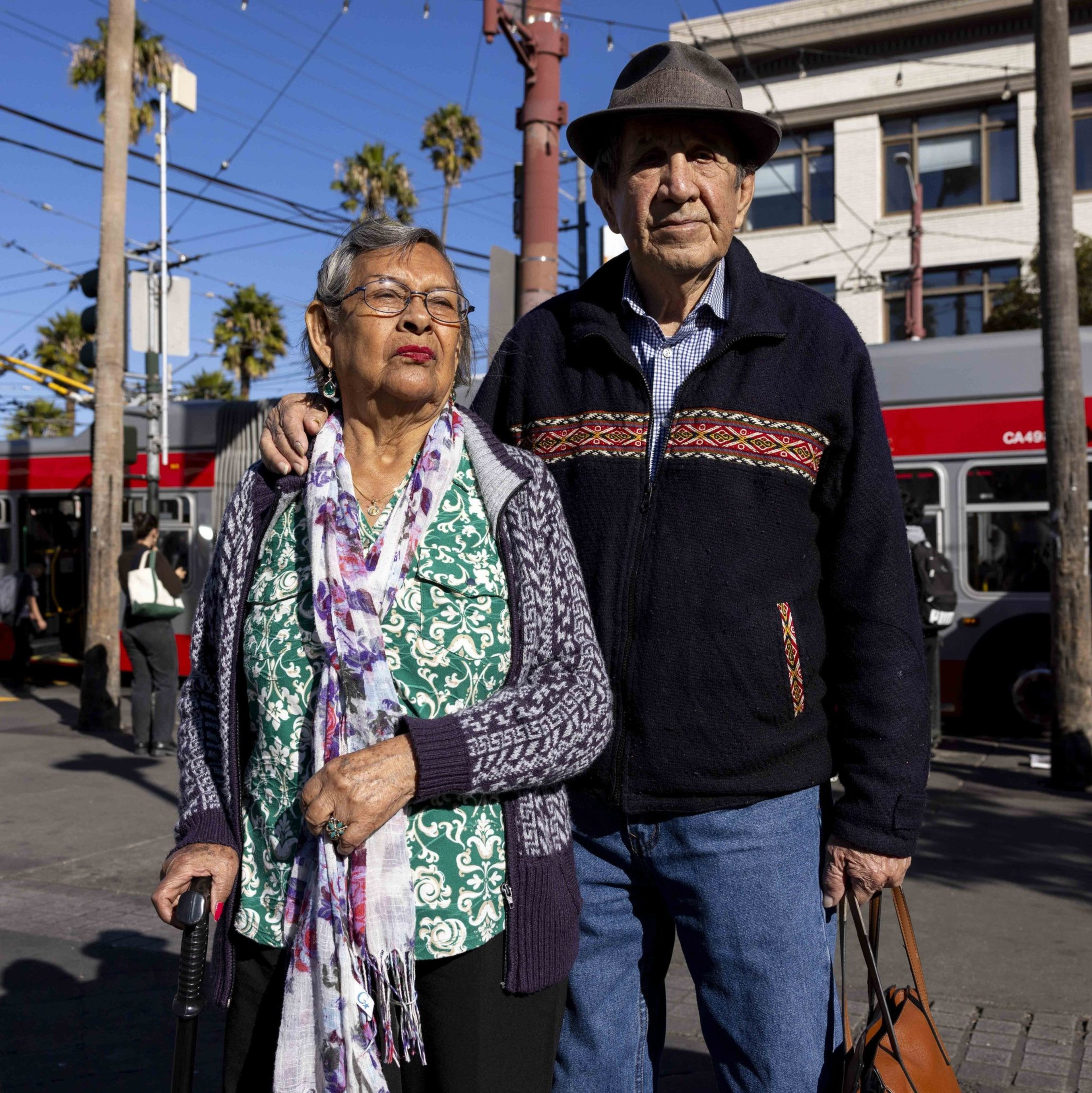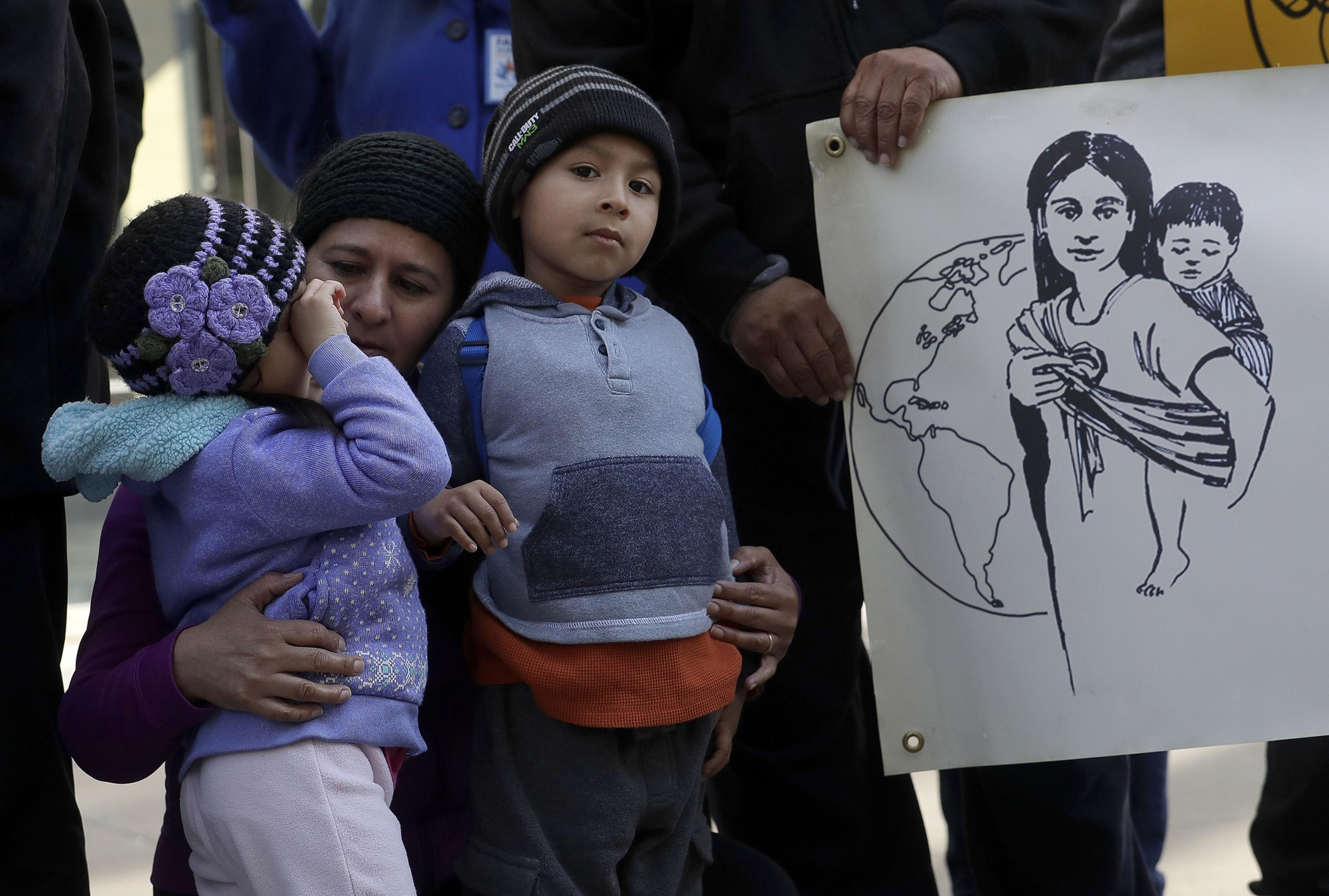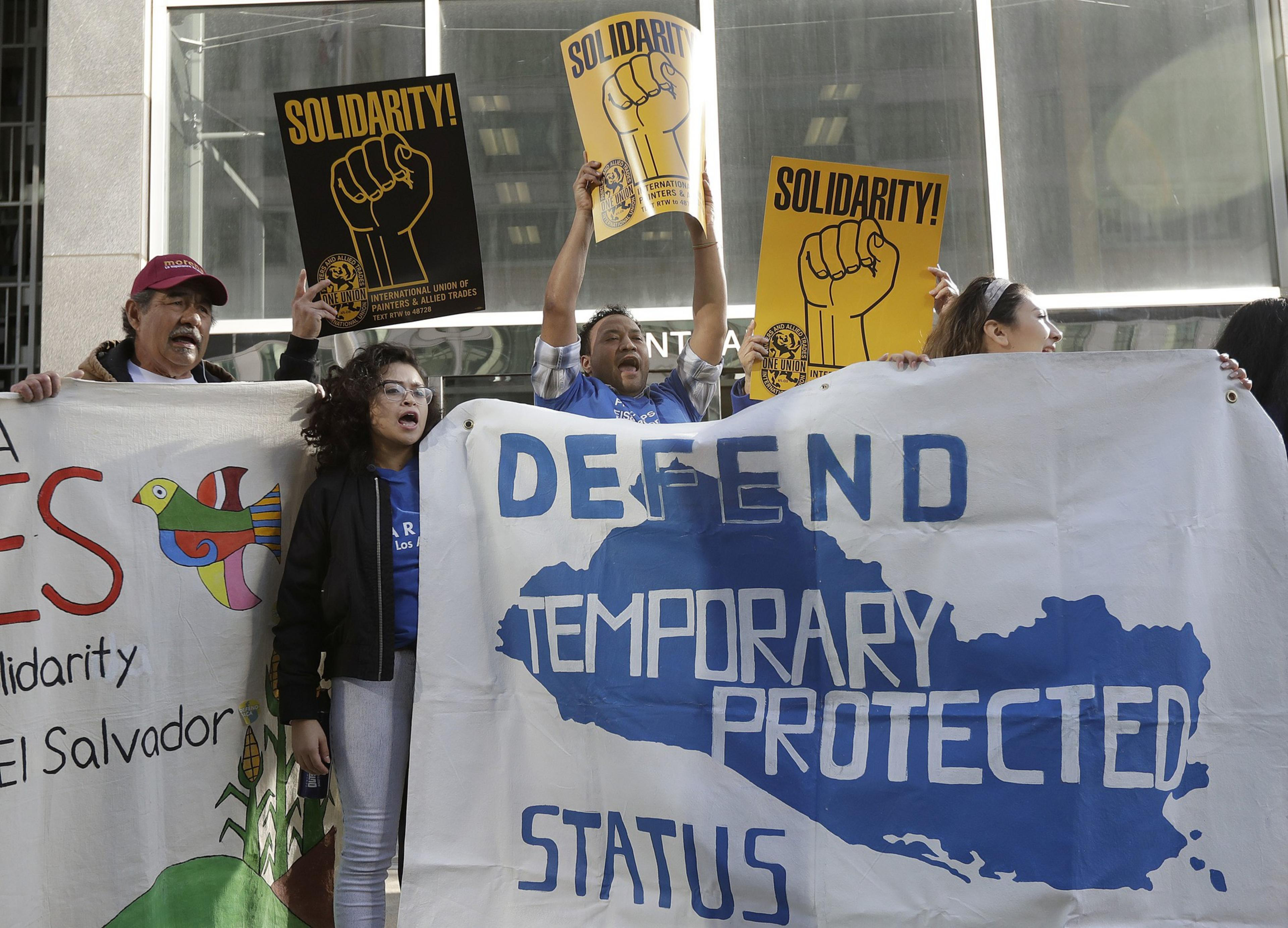Donald Trump, who kicked off his first presidential campaign by calling Mexican immigrants criminals and rapists, is set to take office once again.
This time around, he has promised to round up and deport 11 million undocumented immigrants — many of whom live in California. Here in San Francisco, students, teachers, restaurant workers, laborers, and cleaners without paperwork are already worried. Even those who have recently become citizens or are documented legal aliens shared concerns about Trump’s plans, as did lawyers and activists.
A public school teacher in the Excelsior neighborhood, who asked to remain anonymous, said her students are reeling from Trump’s victory.
“Today’s been so hard with the kids,” she said via text Wednesday. “So many of my students in tears thinking they’re going to get deported.”
The teacher said many of her students are new to the United States.
“They already have so much pressure on them,” she said. “Learning the language, fitting in at a new school, learning a new culture/learning about their new city.”

A 16-year-old girl who attends Mission High School said Wednesday that Trump’s return to the White House worries her greatly — not for her own sake, but for her parents’.
She was born in the city and has lived here her whole life, but her parents immigrated from Mexico and have been in the process of getting their green cards for the last six years. She’s worried that the process will now be stalled or stopped entirely. The Standard is not naming the girl to protect her identity.
“It’s confusing because Trump is trying to have a whole thing about ‘sending them back,’” she said. “We’ve been trying very hard to get their papers. I’m worried it’ll be revoked, I’m worried especially for those people who don’t even have papers.”
Other undocumented workers who spoke to The Standard declined to provide their full name for fear of being deported or jeopardizing their citizenship applications.
Gabriel, who has lived without papers in San Francisco for the last 20 years, said he doesn’t trust Trump to be a good leader.
“If you betray your own government, what can we expect? To be betrayed,” he said of Trump in Spanish.
Gabriel, who said he’s always held two (and sometimes three) jobs — in restaurants, construction, and mall kiosks — said he’s contributed to this country the entire time he’s lived here: he’s paid taxes, he’s raised two kids, both of whom have gone to college and are “responsible citizens.”
And yet time and time again, he’s felt the government turn its back on immigrants; not just Republicans but also Democrats, he said, speaking specifically about the three million people deported under former President Barack Obama.
“They count on us to contribute, but never give us any benefit,” he said.

A 20-year-old restaurant worker in the Mission who arrived undocumented from Guatemala around eight months ago said he hasn’t really been paying attention to the elections.
“I’ve heard he says he’s going to kick people out. If it’s true, we can’t do anything about it because we’re not from this country,” he said. “I hope the things he’s said aren’t true — maybe he just wants to instill fear.”
But other undocumented immigrants weren’t bothered by Trump’s plan for mass deportations. Some even supported it.
“I’m an immigrant, and I love Trump,” said Alex, a day laborer who has been undocumented since he came to the U.S. from Nicaragua 28 years ago.
Alex, who works as a mover for U-Haul, said he’s excited by Trump’s promise to more thoroughly vet immigrants into the U.S. The 43-year-old said he supports deportations if they are focused on undocumented immigrants who have committed crimes.
“That’s my fantasy,” Alex said.
He’s supportive of making it harder to enter the country because he believes that when undocumented immigrants commit serious crimes, it makes Americans think they’re all criminals.
Trump has repeatedly espoused anti-immigrant vitriol, both during his presidential campaigns and his tenure as president. He has called the acquittal of Jose Inez Garcia Zarate, an undocumented immigrant who was accused of fatally shooting San Francisco woman Kate Steinle in 2015, “disgraceful (opens in new tab).” A jury found Garcia Zarate not guilty (opens in new tab) of murder and manslaughter in 2017, but he was convicted of being a felon in possession of a gun. He was deported (opens in new tab) in March.
But Alex conceded that he doesn’t think Trump will actually succeed at launching “the largest deportation operation in American history,” as he proclaims on his official “Agenda 47” website. Alex thinks four years is not enough time to carry out Trump’s plan. And no matter what the U.S. does, illegal immigration is inevitable, he said.
“They put the wall, we’ll break it,” Alex said. “If you gotta feed your kid, you don’t give a fuck.”

Fernando Pineda, a 52-year-old undocumented immigrant from El Salvador who also works as a mover for U-Haul, said he’s ambivalent about Trump’s win because he feels protected by San Francisco’s status as a sanctuary city, meaning it does not coordinate with ICE to deport undocumented immigrants.
“In San Francisco, if you have no documents, it’s OK,” Pineda said, adding that he’s never had an encounter with ICE agents since coming to the city 20 years ago.
Immigration lawyers are worried too. Attorney Andrei Romanenko recalled that during Trump’s first presidency, he eliminated prosecutors’ discretion to close low-priority cases in immigration court. He also appointed immigration judges with backgrounds in prosecution, increasing the number of judges “who were biased and anti-immigrants,” Romanenko said.
He added that Trump stripped the U.S. Citizenship and Immigration Services of its authority to waive interviews with people applying to be citizens, leading to a yearlong backlog of cases.
Prosecutorial discretion and interview waivers returned under Biden, but Trump could remove them once again when he takes office.
“These are just a few issues that I’ve experienced that are likely to come back in his second presidency,” Romanenko, who was once on the Immigrant Rights Commission in San Francisco, said.
As people queued up at La Raza Community Resource Center in the Mission for Wednesday’s food bank, program coordinator Carmen noticed the line was noticeably shorter. She attributed it to the election.

“People are scared,” she said in Spanish. “Six volunteers didn’t show up. Many fewer people have come to pick up food today. Some don’t understand that Trump doesn’t transition to president until January.”
Carmen said she has warned volunteers and people seeking services not to panic.
“Things don’t happen overnight,” she said. “Maybe in the end, things will be different than what we think, but people still have this fear.”
Gabriel Medina, executive director of La Raza Community Resource Center in the Mission District, said there have already been meetings among advocates in San Francisco about how to prepare for a Trump presidency. His organization is planning to have a staff meeting Thursday to get employees ready.
“Some [service seekers] have children who were born in the country,” Medina said “They’re worried about being separated from their families.”
Medina said each undocumented family should have a contact sheet ready in case they’re detained, and residents should be careful about sharing their location. He added that there’s a response network for ICE sightings in the city.
“I expect there to be an increase in reported ICE sightings,” Medina said. “I hope that’s not the case, but we have to prepare in case it is.”
